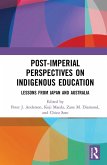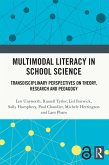In this last two decades, Japan has experienced slow economic growth, changed employment practices, population decline, an aging society, and an increasingly multi-ethnic population resulting from migration. This book illuminates changing policies and cumulative adjustments in the daily practice of schooling.
Dieser Download kann aus rechtlichen Gründen nur mit Rechnungsadresse in A, B, BG, CY, CZ, D, DK, EW, E, FIN, F, GR, HR, H, IRL, I, LT, L, LR, M, NL, PL, P, R, S, SLO, SK ausgeliefert werden.
"Her analytical lens, which intersects micro and macro levels, provides a broad, yet nuanced picture of how Japanese education has responded to the increasing diversity and inequality in society".
Dr. Misako Nukaga, The University of Tokyo. Review in International Studies in Sociology of Education. DOI: 10.1080/09620214.2021.2006747
"Education and Social Justice in Japan offers fresh insights into an education system that has undergone some significant shifts over the past two decades. In engaging and accessible language, Kaori Okano illustrates how the system has responded to growing pressure to promote social justice in schools. [...] This book should satisfy readers who focus on Japanese education as well as those interested in topics such as globalisation, social justice, inequality and multicultural education."
Dr. Christopher Bjork, Vassar College. Review in Asian Studies Review. DOI: 10.1080/10357823.2021.1958708
"The author convincingly demonstrates that while recent attempts to reform education may have extended school choice and school autonomy, created alternative ways and opportunities to access higher levels of education, and reduced the achievement gap predetermined by socioeconomic status, they are at the same time failing to significantly reduce inequality in educational opportunities."
Dr. Steve R. Entrich, University of Potsdam. Review in International Review of Education. DOI: 10.1007/s11159-021-09926-6
"Okano suggests that difference and diversity have become more valued and accommodated over the last decades, allowing "more students to participate longer in schooling" (175). However, relatively little has changed in terms of diversifying the content of schooling. Nor have affirmative action programmes found favour. The approach to social justice in Japanese education is still overwhelmingly about seeking to ensure that all children get the same amounts of the same educational content, regardless of their social group. [...] Inevitably, specialists on this inherently controversial field may disagree with some of [Okano's] analyses or conclusions. However, none will fail to be impressed by the combination of scope, detail, and judiciousness that make [this book] an essential reference on its subject."
Dr. Peter Cave, University of Manchester. Review in Contemporary Japan. DOI: 10.1080/18692729.2021.1999885
"It provides an overview of Japanese education from the early pre-modern era to the current reform initiative in 2019. More importantly, the book adds new perspectives of social justice in education to the current scholarship on Japanese education.[...] The book is very informative, easy to read, and can be assigned to undergraduate courses. This is a welcome addition to Japanese studies scholarship."
Akihiro Ogawa, The University of Melbourne, Parkville, Pacific Affairs: Volume 95, No. 3
Dr. Misako Nukaga, The University of Tokyo. Review in International Studies in Sociology of Education. DOI: 10.1080/09620214.2021.2006747
"Education and Social Justice in Japan offers fresh insights into an education system that has undergone some significant shifts over the past two decades. In engaging and accessible language, Kaori Okano illustrates how the system has responded to growing pressure to promote social justice in schools. [...] This book should satisfy readers who focus on Japanese education as well as those interested in topics such as globalisation, social justice, inequality and multicultural education."
Dr. Christopher Bjork, Vassar College. Review in Asian Studies Review. DOI: 10.1080/10357823.2021.1958708
"The author convincingly demonstrates that while recent attempts to reform education may have extended school choice and school autonomy, created alternative ways and opportunities to access higher levels of education, and reduced the achievement gap predetermined by socioeconomic status, they are at the same time failing to significantly reduce inequality in educational opportunities."
Dr. Steve R. Entrich, University of Potsdam. Review in International Review of Education. DOI: 10.1007/s11159-021-09926-6
"Okano suggests that difference and diversity have become more valued and accommodated over the last decades, allowing "more students to participate longer in schooling" (175). However, relatively little has changed in terms of diversifying the content of schooling. Nor have affirmative action programmes found favour. The approach to social justice in Japanese education is still overwhelmingly about seeking to ensure that all children get the same amounts of the same educational content, regardless of their social group. [...] Inevitably, specialists on this inherently controversial field may disagree with some of [Okano's] analyses or conclusions. However, none will fail to be impressed by the combination of scope, detail, and judiciousness that make [this book] an essential reference on its subject."
Dr. Peter Cave, University of Manchester. Review in Contemporary Japan. DOI: 10.1080/18692729.2021.1999885
"It provides an overview of Japanese education from the early pre-modern era to the current reform initiative in 2019. More importantly, the book adds new perspectives of social justice in education to the current scholarship on Japanese education.[...] The book is very informative, easy to read, and can be assigned to undergraduate courses. This is a welcome addition to Japanese studies scholarship."
Akihiro Ogawa, The University of Melbourne, Parkville, Pacific Affairs: Volume 95, No. 3









